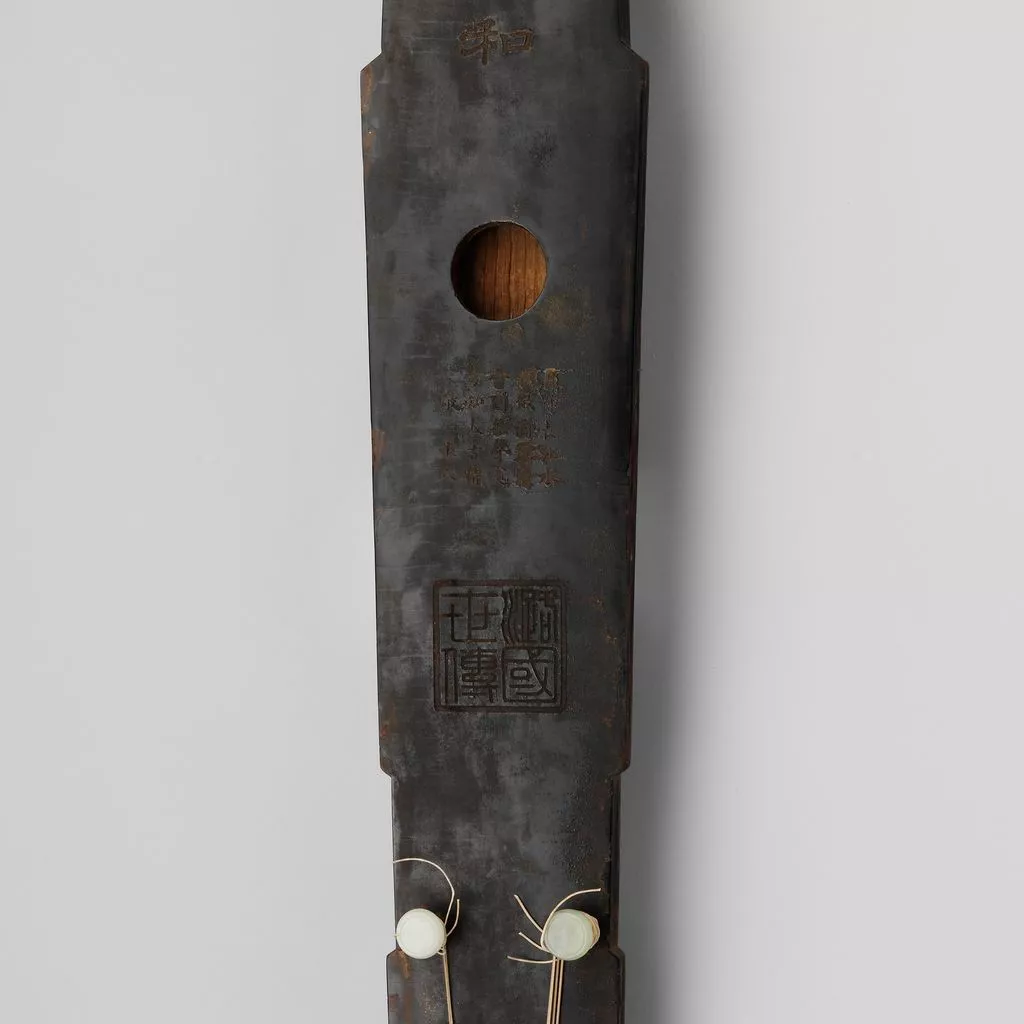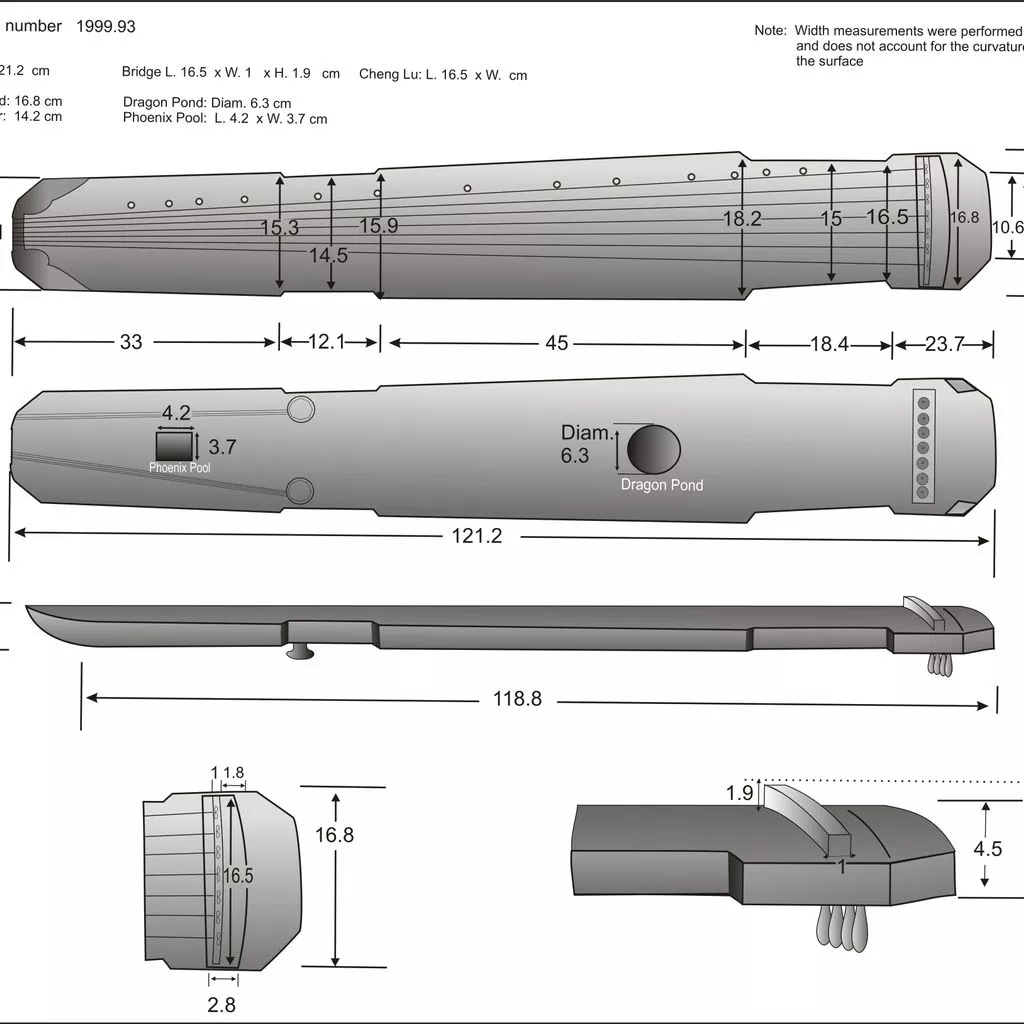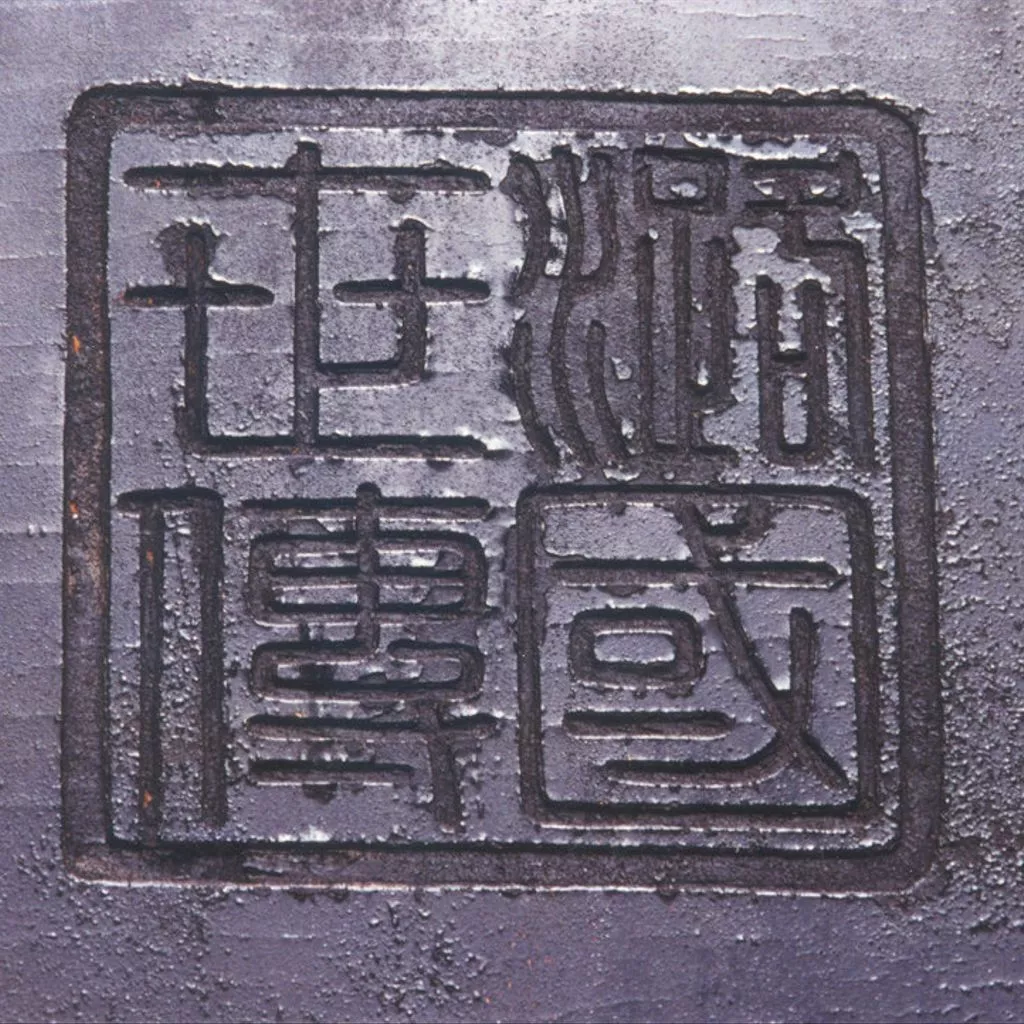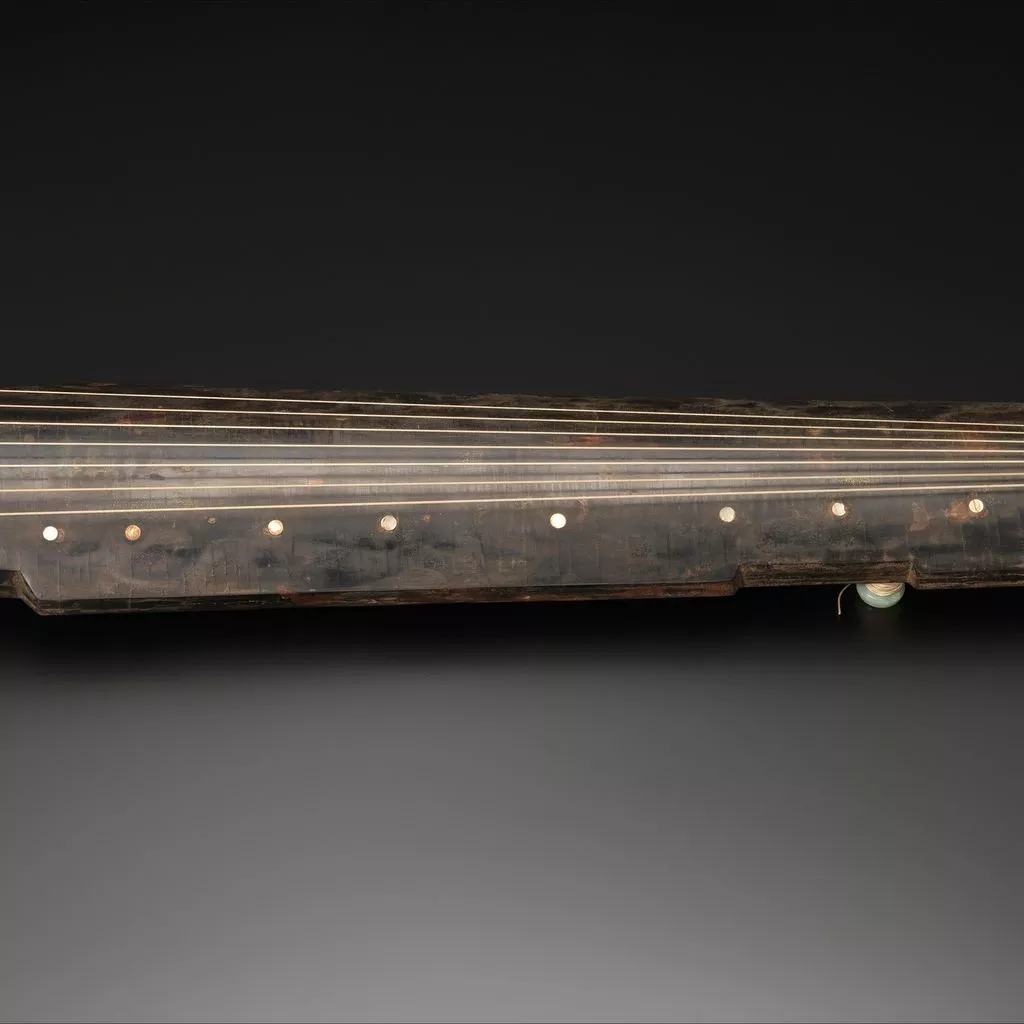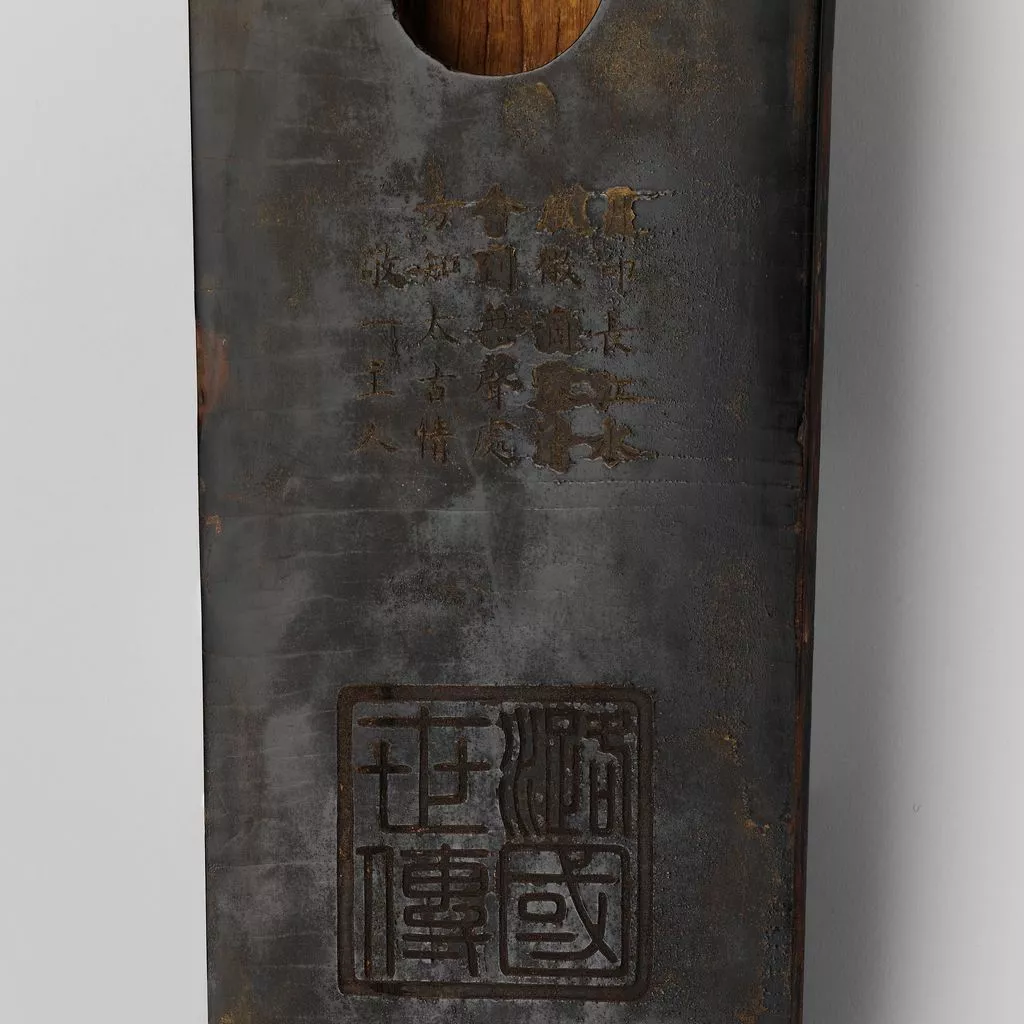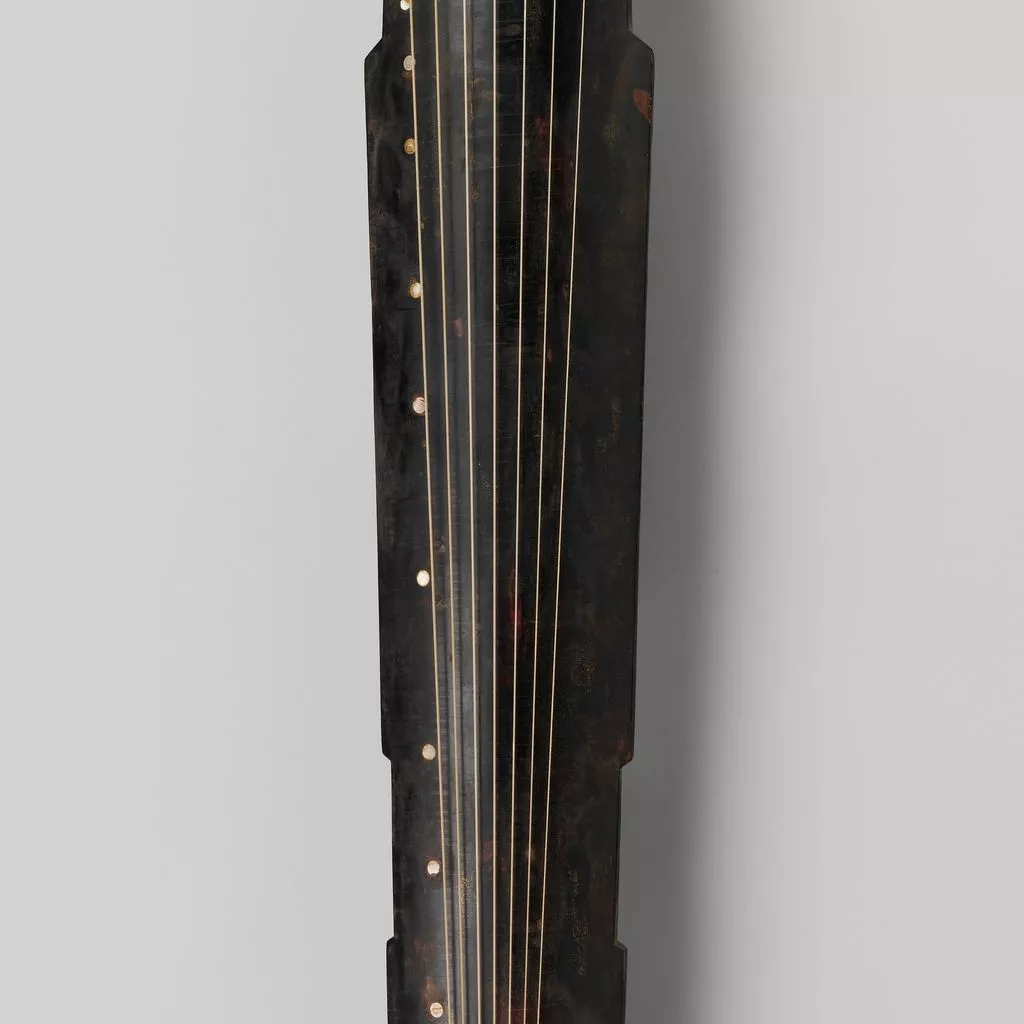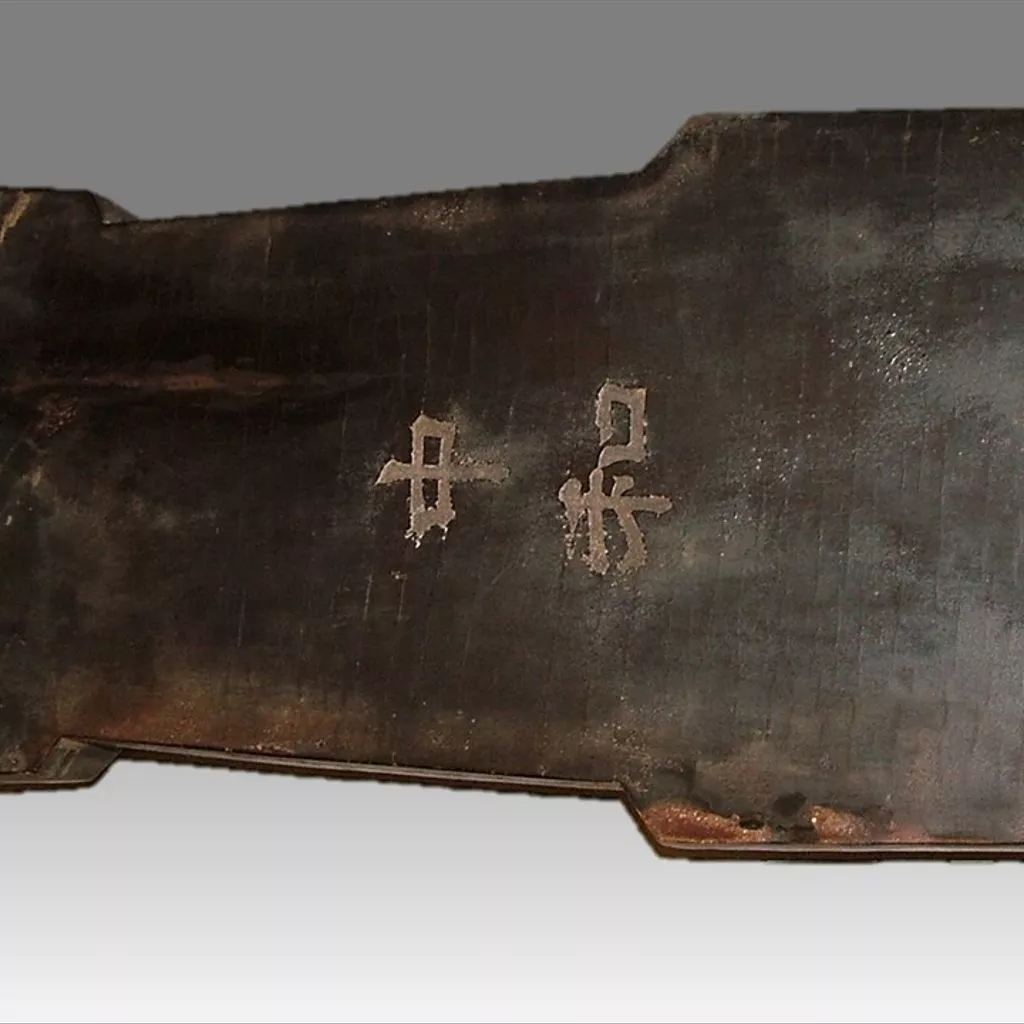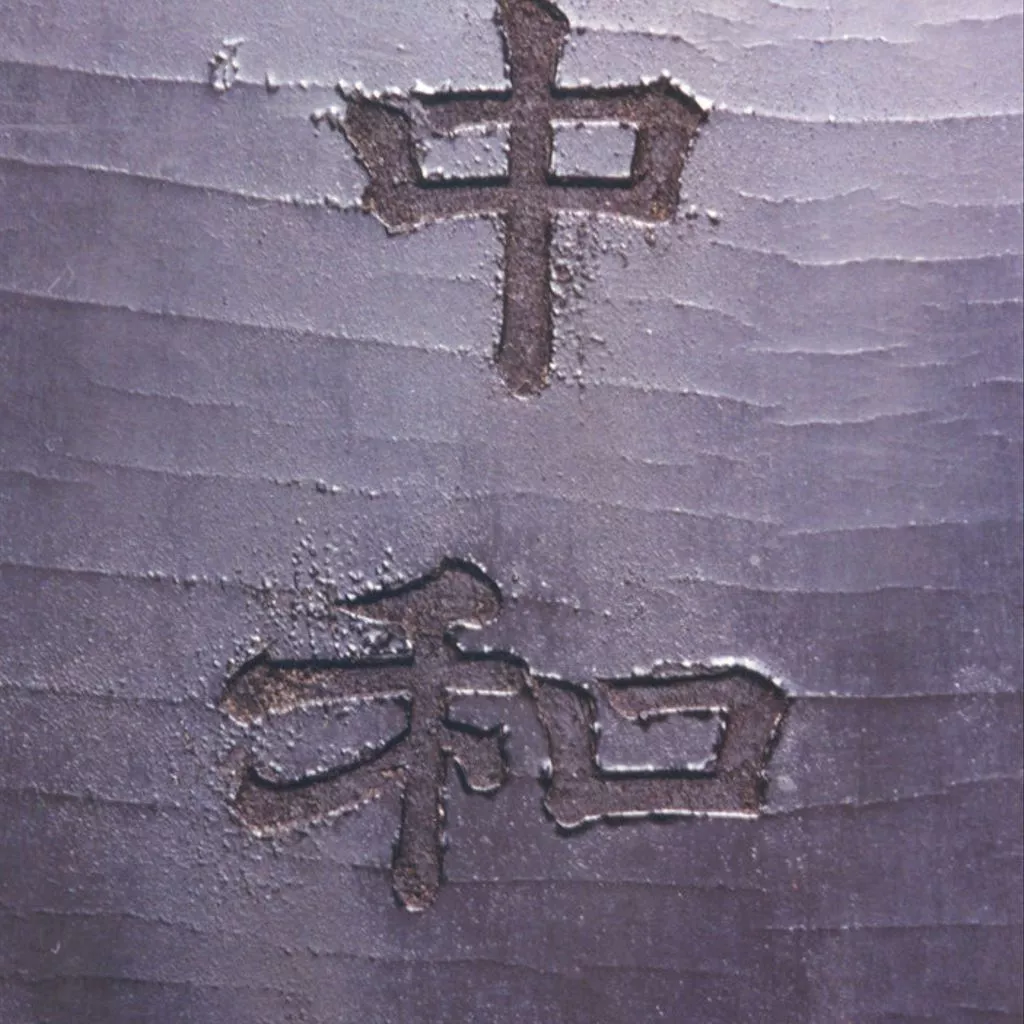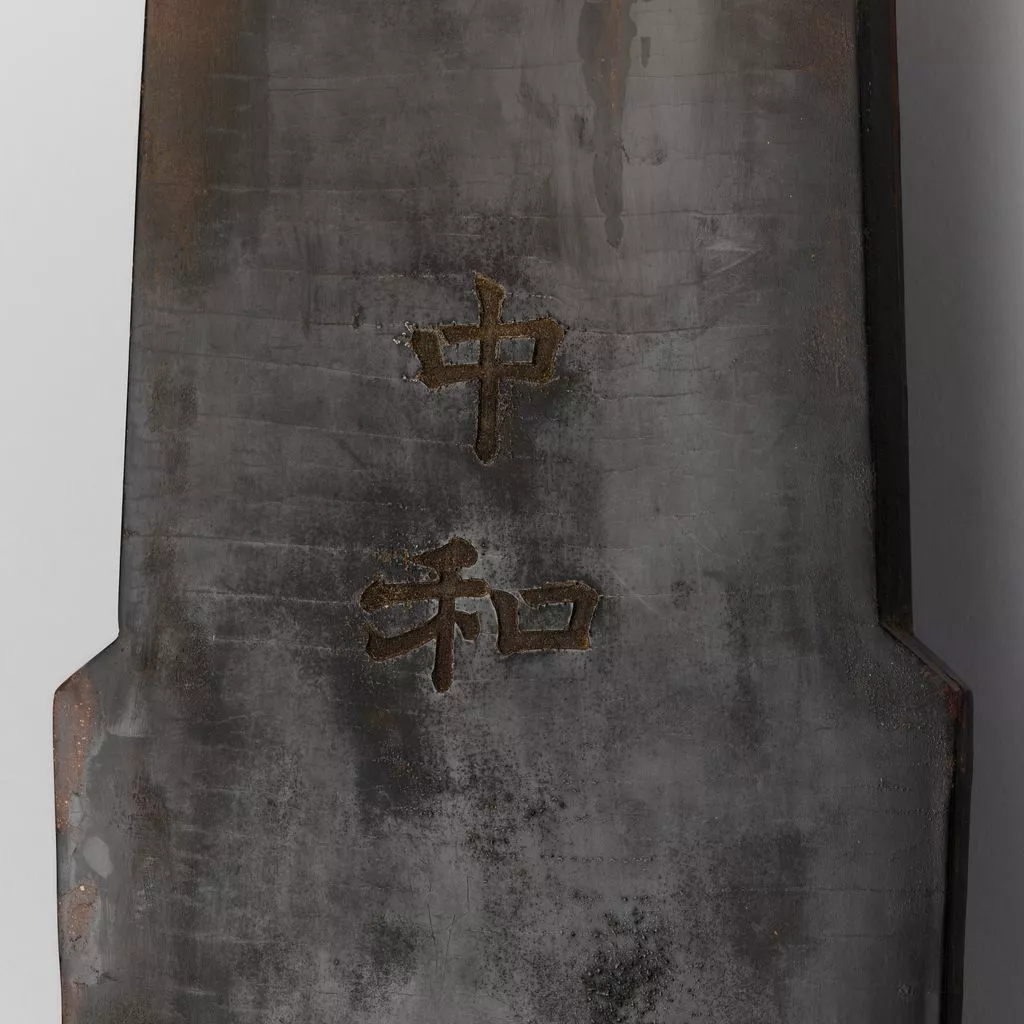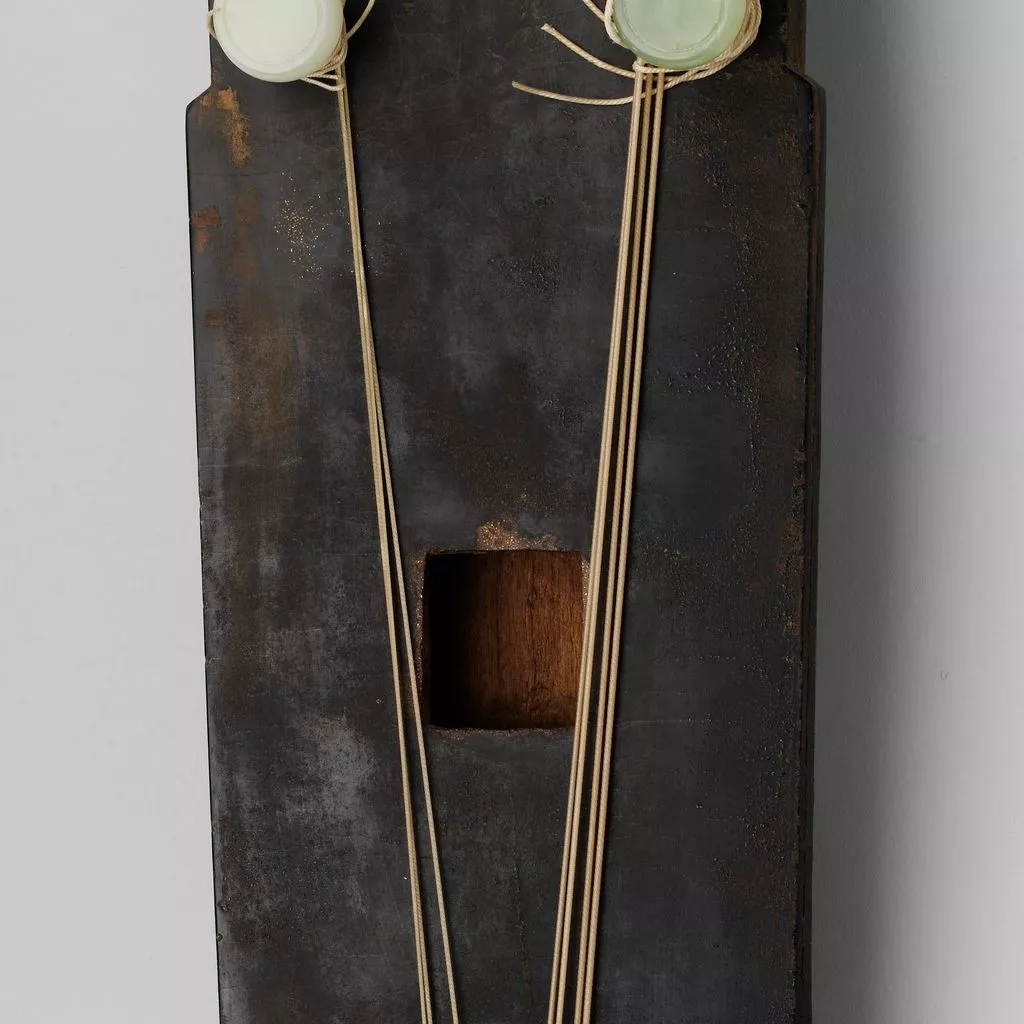Description
an one comprehend the feeling of eternity.Endowed with cosmological and metaphysical significance and empowered to communicate the deepest feelings, the qin, beloved of sages and of Confucius, is the most prestigious instrument in China. Han-dynasty writers state that the qin helped to cultivate character, understand morality, supplicate gods and demons, enhance life, and enrich learning. Ming-dynasty literati who claimed the right to play the qin suggested that it be played outdoors in a mountain setting, a garden, a small pavillion, or near an old pine tree (symbol of longevity) while burning incense to perfume the air. A serene moonlit night was considered an appropriate time for performance. Each part of the instrument is identified by an anthropomorphic or zoomorphic name and cosmology is ever present: for example, the upper board of wutong wood symbolizes heaven, the bottom board of zi wood symbolizes earth. Qins over a hundred years old are considered best, the age determined by the pattern of cracks (duanwen) in the lacquer. The thirteen studs (hui) indicate finger positions. Strings of varying thicknesses are made of twisted silk.















